Story by Caroline Spurgin, photos by Alycia Lang
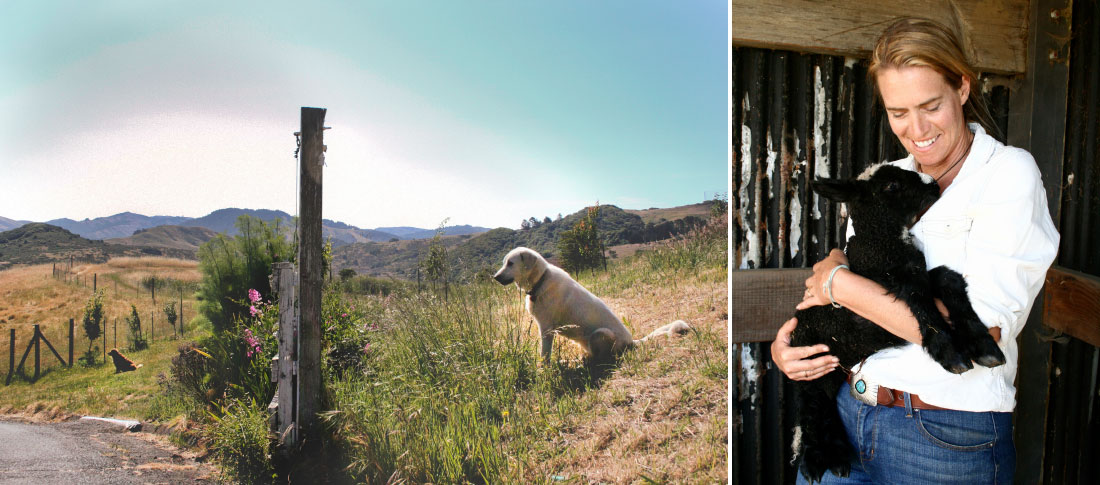
The process of arriving at Marnie Jackson’s farm is an experience in itself. As Lucas Valley Road vanishes into a distant point point behind us and Nicasio Valley Road rolls out ahead, the Nicasio valley appears to bloom before our eyes. Velveteen hills roll out on all sides and as we travel the views open up to reveal layer upon layer of sumptuous undulating earth. We circumnavigate an expanse of celadon water teeming with wildlife — the Nicasio Reservoir — before again diving into the flaxen grasses. The gold flanked pavement carries us the rest of the way to Black Mountain Farm at the heart of the valley. As we drive up the driveway we are met by Marnie perched atop her gator. She’s been working with the sheep, who have been occupying her since before dawn, when Maggie, a chocolaty Wensleydale, began birthing twins.
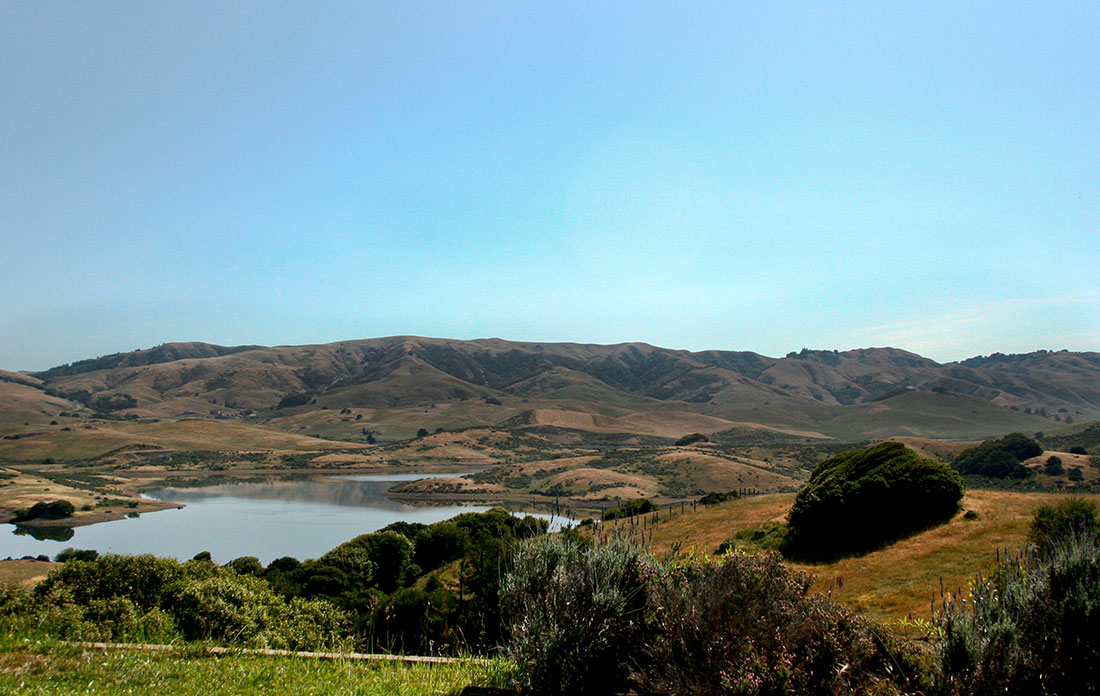
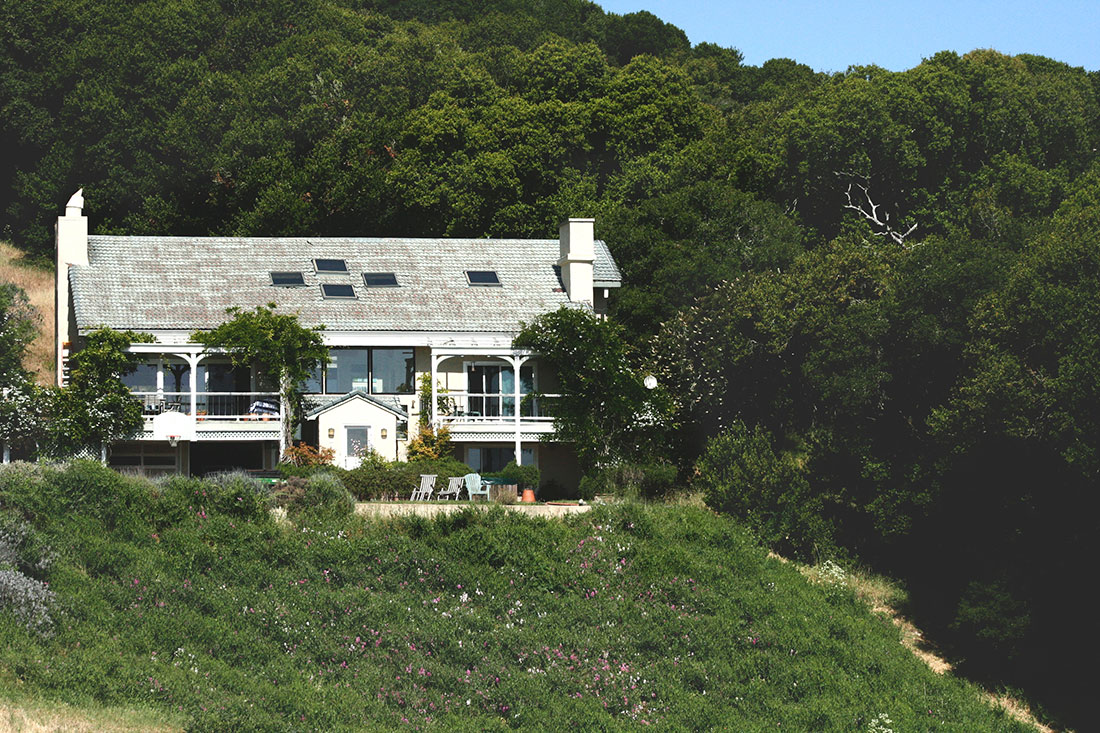
Marnie is tall and confident, with a bold presence and a steady stride. She was born in Minnesota, though there is something distinctly old-world in her demeanor. She spent the first eight years of her life in the Italian countryside, neighbor to a 200-year-old farm. The elderly woman who managed the farm and the rustic lifestyle she practiced made a profound impression on Marnie, to the degree that years later, when Marnie’s young family was living in Palo Alto, she decided to return to that lifestyle in her own way. The Jackson family moved out to Nicasio to begin “their own adventure,” as Marnie calls it, alluding to the adventure undertaken by her own parents when they moved their young family to Italy.
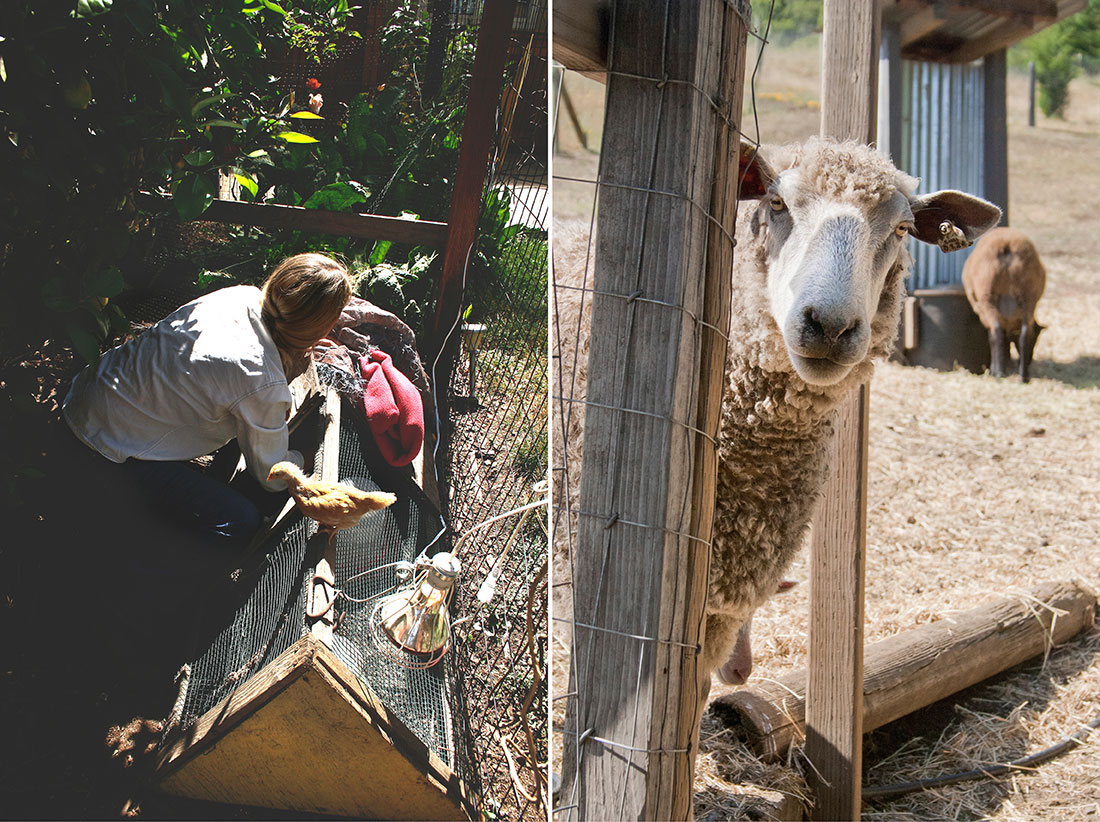
She refers to Black Mountain Farm as a hobby farm, but she’s being modest. The farm’s animal population is comprised of two dogs, three cats, one horse, seven (as of that morning) sheep, ten laying hens, ten chicken chicks, four turkey chicks, two turkeys four rabbits and several honey bee colonies. This colorful menagerie, combined with a garden, and 120 acres of Nicasio valley keep Marnie & Co. (husband, Whit, and two children, Ellierose (11) and Duncan (16)) plenty busy.
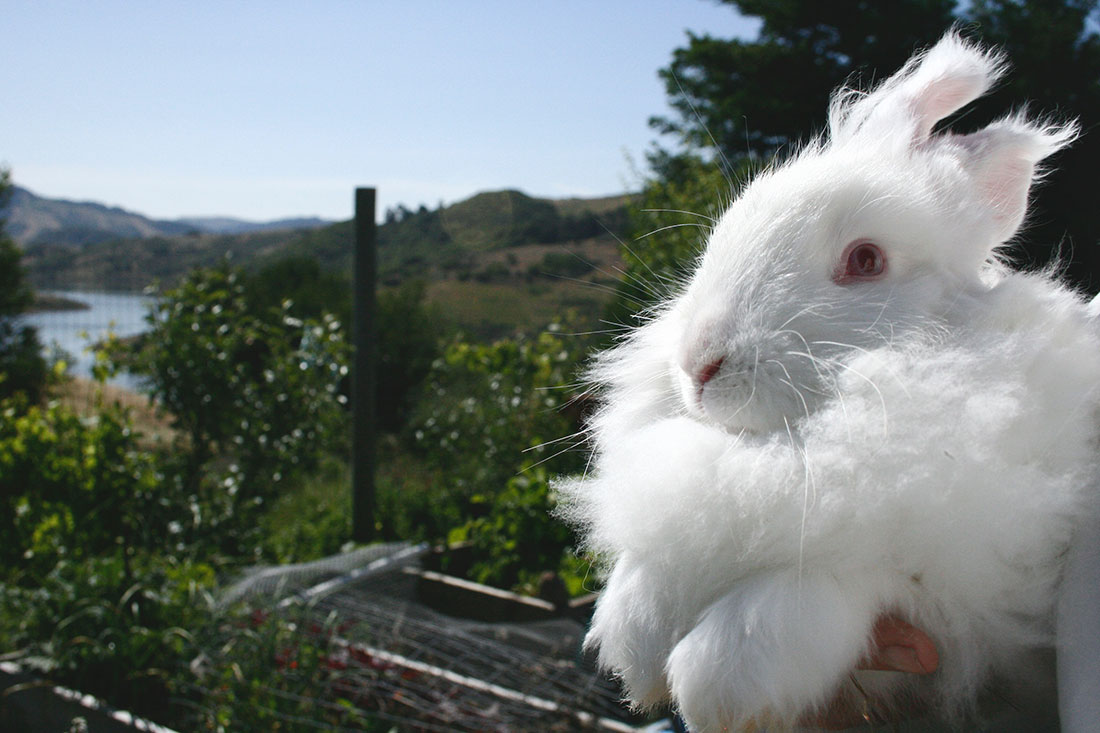
The rabbits and sheep (Honey, Maggie, Mocha and their lambs) she employs for fiber and meat, the dogs to protect the flock, the chickens for eggs, and the bees for honey. The garden is for produce and natural dye — Amaranth for red and Coreopsis for yellow — which she uses to dye her fiber harvest.
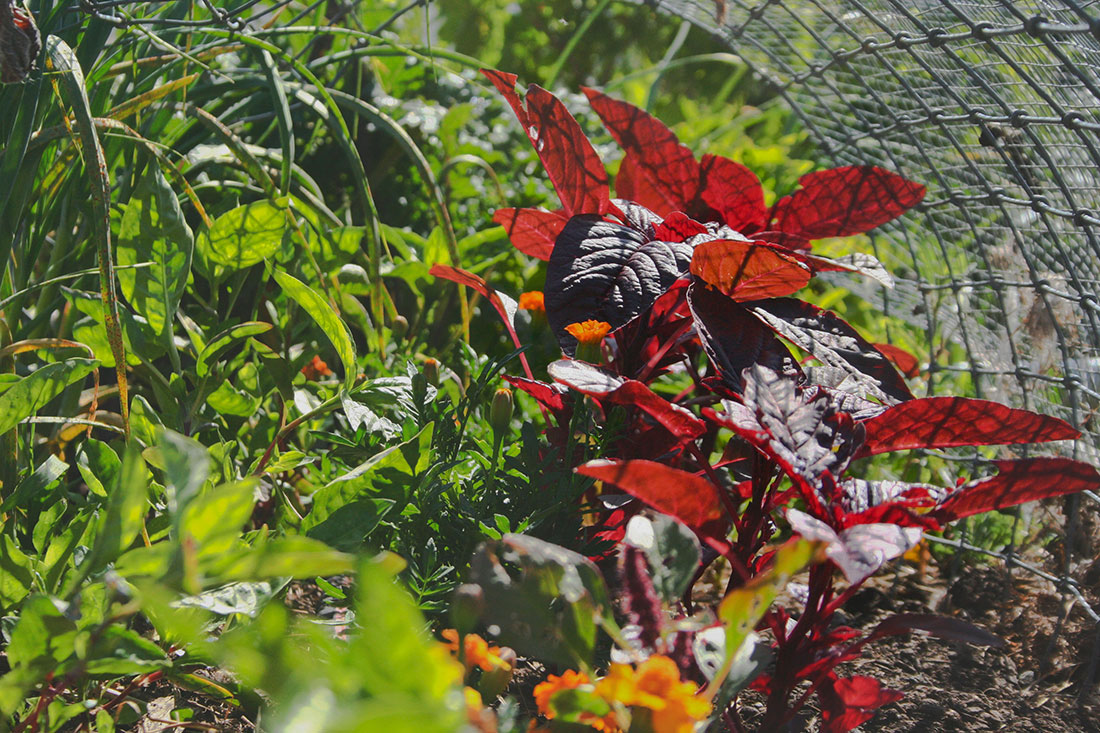
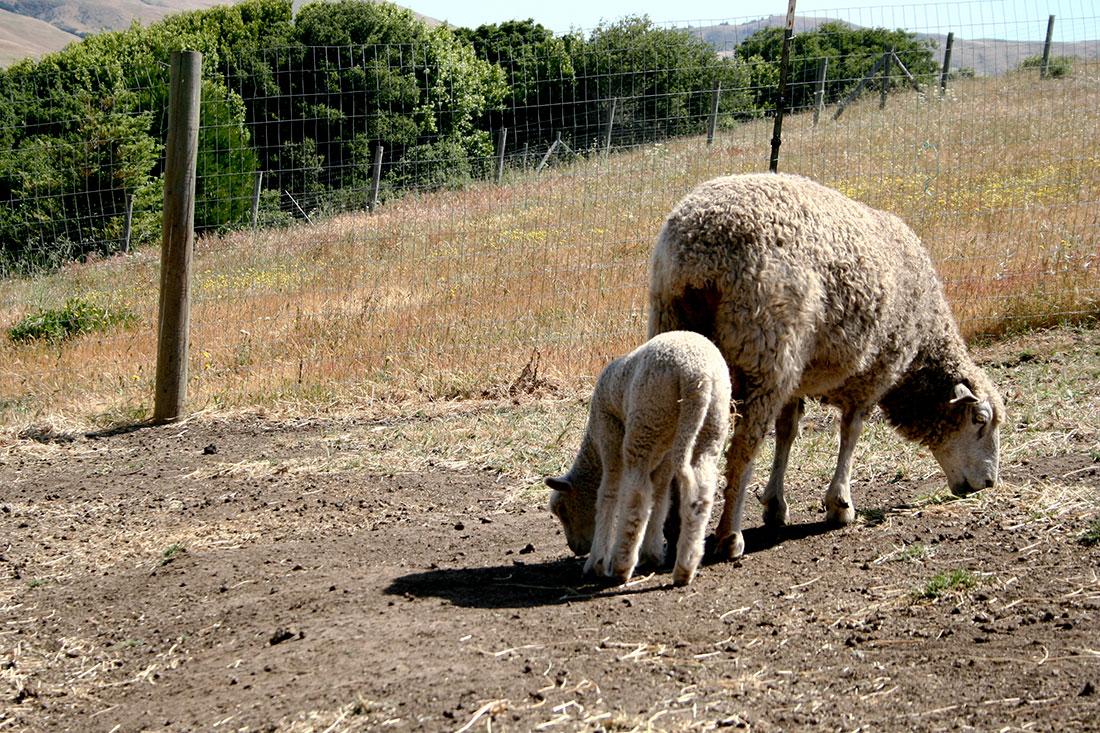
The two turkeys, Tom and Alice, are for Thanksgiving and for sport. Tom and Alice provide a great deal of comedic relief for the farm — please visualize Marnie, Tom (pictured below) tucked into her coat, in hot pursuit of Alice on one of their many foiled escapes. Tom and Alice’s semi-successful breeding routine is a source of great joy for Marnie and Co. Turkeys have been domesticated for so long, bred for brawn over brains, that they have apparently lost nearly all requisite survival skills — they no longer have innate faculties for drinking, eating, perching, self defense, mating or rearing young. Reversing this process of devolution in her little flock has taken much effort, but seems to have been a generally successful endeavor. Watching Tom court Alice is truly a show in evolutionary magnificence. With plumage inflated to the effect of roughly tripling his size, and his substantial waddle, by some mysterious effort, changing from red to blue to white, he propositions Alice to great avail. “We’re hatching real eggs from real turkeys that really mated!” Marnie exclaims, “It’s like gold!”
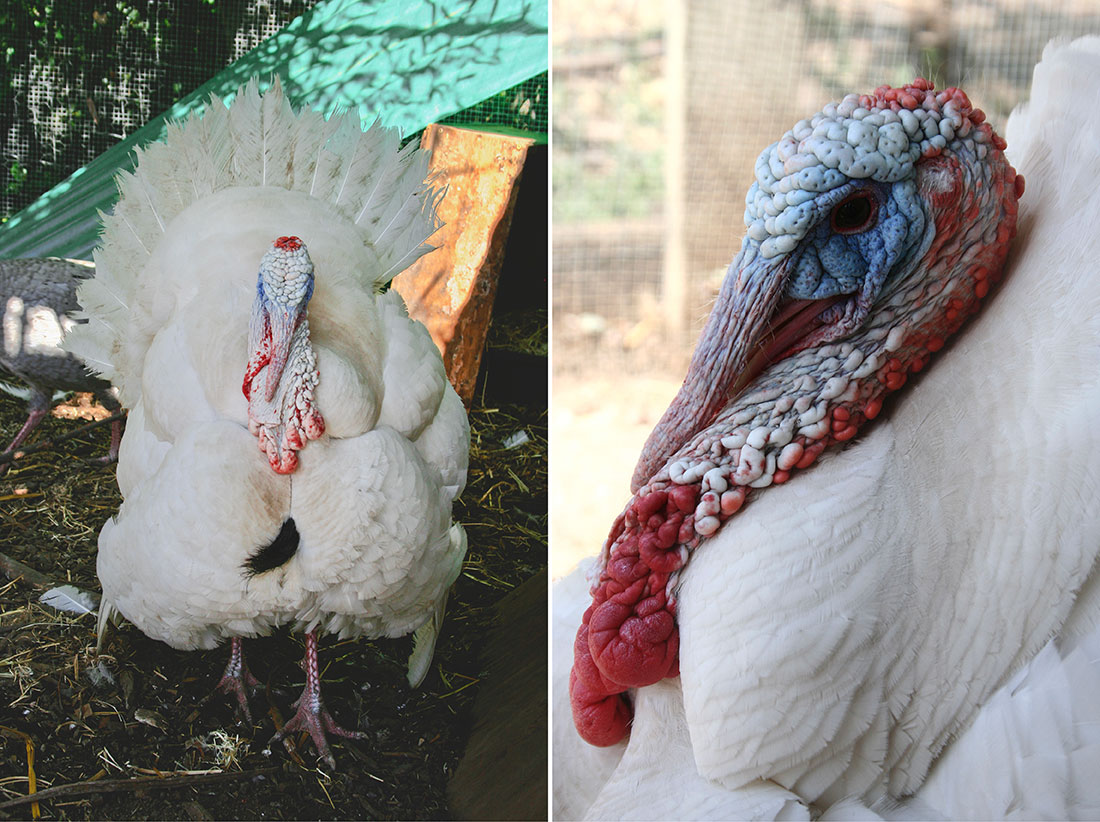

For Marnie, Black Mountain farm is not an endeavor in financial gain, it’s about teaching and learning and getting involved in the exquisite, dirty, poignant elements of life. She chose to extricate her children from the contemporary adolescent experience of digital existence and ground them in life on the earth in the way that she was on the farm in Italy. She wanted her kids to be familiar with the processes of life and death, to know where their food comes from and to understand the value of hard work. She also wants to prove that farming doesn’t need to be viewed as an exotic or inaccessible practice, “it just takes a willingness to try, experiment and not get discouraged… If I can do this anyone can…” she insists. She believes that the key to farming lies in finding what works for you and finding what you’re comfortable with.
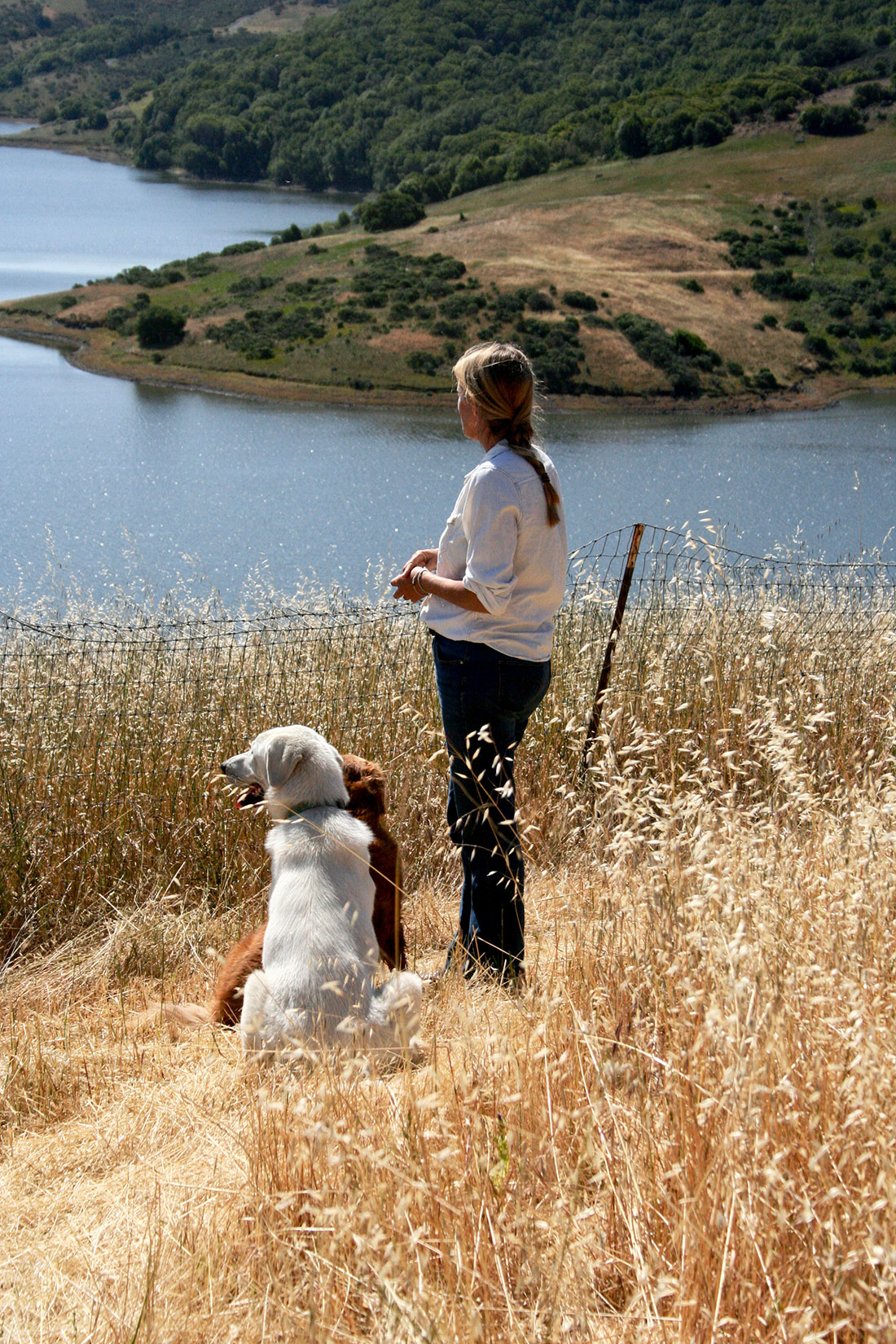
If you’re up for an adventure of your own you can wander down into the Nicasio Valley and find Marnie and her farm; there you can get a taste of the new Old World and peruse the farm’s products such as eggs, honey, jam, lamb, hand and mill spun wool and wonderful hand-knit hats. You can get in touch with Marnie through the farm’s Facebook page for more information regarding how to find the farm and upcoming events.
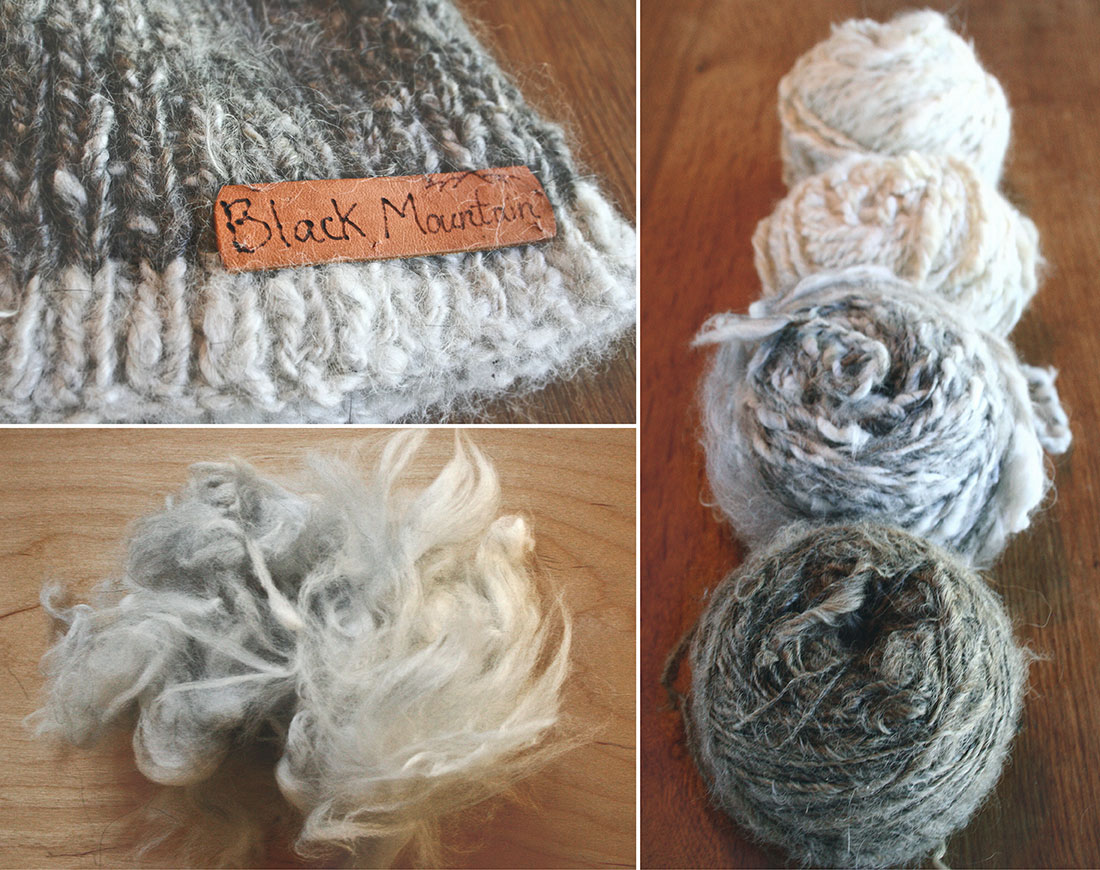
Many, many thanks to Marnie for a wonderful visit!
